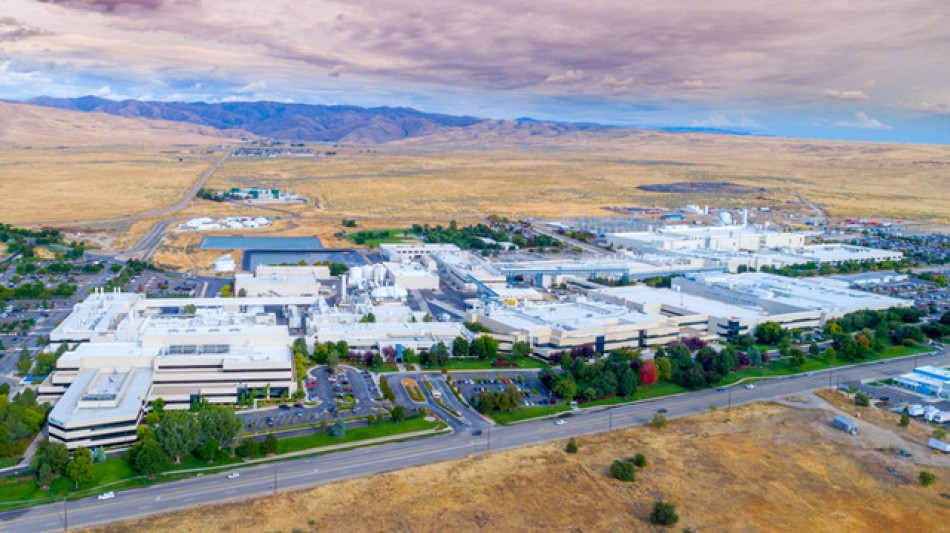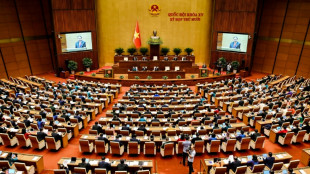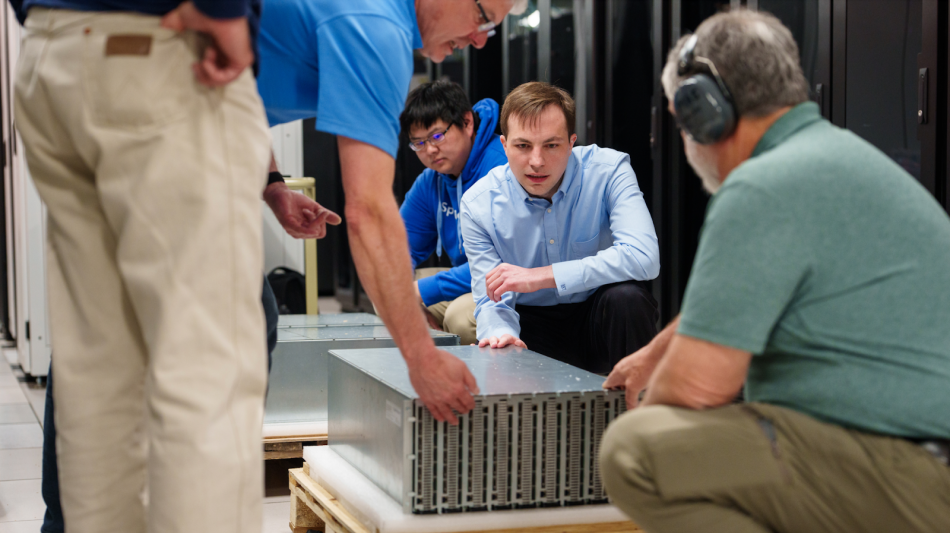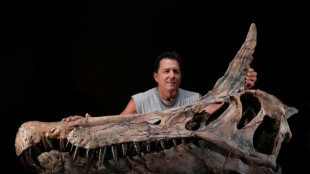
-
 Liverpool's set play transformation a return to 'normal' for Slot
Liverpool's set play transformation a return to 'normal' for Slot
-
Man City win to close on Arsenal as Liverpool hit five

-
 Kane bags brace as Bayern end Dortmund's title hopes
Kane bags brace as Bayern end Dortmund's title hopes
-
Semenyo sinks Leeds as Man City close gap on Arsenal

-
 Last-gasp Lukaku saves Napoli's blushes at rock-bottom Verona
Last-gasp Lukaku saves Napoli's blushes at rock-bottom Verona
-
Could the US-Israel war on Iran drag on?

-
 Iranians abroad jittery but jubilant at US, Israeli strikes
Iranians abroad jittery but jubilant at US, Israeli strikes
-
Pakistan 'have underperformed' says Agha after T20 World Cup exit

-
 Under-strength Toulouse overpower Montauban in Top 14
Under-strength Toulouse overpower Montauban in Top 14
-
Vietnam AI law takes effect, first in Southeast Asia

-
 Brazil's Lula visits flood zone as death toll from landslides hits 70
Brazil's Lula visits flood zone as death toll from landslides hits 70
-
New Zealand into T20 World Cup semis as Sri Lanka avoid big Pakistan loss

-
 Medvedev wins Dubai title as Griekspoor withdraws
Medvedev wins Dubai title as Griekspoor withdraws
-
First Yamal hat-trick helps Liga leaders Barcelona beat Villarreal

-
 Liverpool hit five past West Ham, Haaland-less City face Leeds test
Liverpool hit five past West Ham, Haaland-less City face Leeds test
-
Van der Poel romps to cobbled classic win

-
 Republicans back Trump, Democrats attack 'illegal' Iran war
Republicans back Trump, Democrats attack 'illegal' Iran war
-
Madonna is surprise attraction at Dolce & Gabbana Milan show

-
 Farhan keeps Pakistan hopes alive as they post 212-8 against Sri Lanka
Farhan keeps Pakistan hopes alive as they post 212-8 against Sri Lanka
-
Afghanistan says civilians killed in Pakistan air strikes

-
 Tug of war: how US presidents battle Congress for military powers
Tug of war: how US presidents battle Congress for military powers
-
Residents flee as Iran missiles stun peaceful Gulf cities

-
 Streets empty and shops close as US strikes confirm Iranian fears
Streets empty and shops close as US strikes confirm Iranian fears
-
Israelis shelter underground as Iran fires missiles

-
 Bournemouth held by Sunderland in blow to European bid
Bournemouth held by Sunderland in blow to European bid
-
VAR expanded to include second bookings and corners for World Cup

-
 Iranians in Istanbul jittery but jubilant at US, Israeli strikes
Iranians in Istanbul jittery but jubilant at US, Israeli strikes
-
Congo-Brazzaville president vows to keep power as campaign kicks off

-
 US, Israel launch strikes on Iran, Tehran hits back across region
US, Israel launch strikes on Iran, Tehran hits back across region
-
Germany's Aicher wins women's super-G in Soldeu

-
 Fight against terror: Trump threatens Tehran's mullahs
Fight against terror: Trump threatens Tehran's mullahs
-
US and Israel launch strikes on Iran, explosions reported across region

-
 Iran's Khamenei: ruthless revolutionary at apex of Islamic republic
Iran's Khamenei: ruthless revolutionary at apex of Islamic republic
-
In Iran attack, Trump seeks what he foreswore -- regime change

-
 Climate change forces facelift for Michelangelo masterpiece
Climate change forces facelift for Michelangelo masterpiece
-
Trump says US aims to destroy Iran's military, topple government

-
 Acosta wins season-opening MotoGP sprint after Marquez penalty
Acosta wins season-opening MotoGP sprint after Marquez penalty
-
US and Israel launch strikes against Iran

-
 Afghanistan says Pakistan fighter jet down as cross-border strikes flare
Afghanistan says Pakistan fighter jet down as cross-border strikes flare
-
Kerr says only '85 percent' fit for Women's Asian Cup

-
 Messi's Inter Miami to visit White House: US media
Messi's Inter Miami to visit White House: US media
-
Thunder beat Nuggets in overtime on Gilgeous-Alexander's return

-
 'It's surreal': Zimbabwe superfans revel in unexpected ride to India
'It's surreal': Zimbabwe superfans revel in unexpected ride to India
-
New 'Wuthering Heights' film unleashes fresh wave of Bronte-mania

-
 US backs Pakistan's 'right to defend itself' after strikes on Afghanistan
US backs Pakistan's 'right to defend itself' after strikes on Afghanistan
-
Bezzecchi beats Marquez to pole at season-opening Thailand MotoGP

-
 OpenAI strikes Pentagon deal with 'safeguards' as Trump dumps Anthropic
OpenAI strikes Pentagon deal with 'safeguards' as Trump dumps Anthropic
-
Oscar-nominated 'F1' sound engineers recreate roar of racetrack

-
 15 dead as cash-packed military plane crashes in Bolivia
15 dead as cash-packed military plane crashes in Bolivia
-
Costa Rica's Grynspan pledges reform in bid for UN chief job


SpiNNcloud Deploys SpiNNaker2 Supercomputer at Sandia National Laboratories
Energy-efficient architecture - mimicking the human brain - provides substantive benefits over GPU-based systems across a variety of applications, including nuclear deterrence research.
DRESDEN, GERMANY / ACCESS Newswire / June 5, 2025 / Today SpiNNcloud announced that Sandia National Laboratories has officially deployed its new SpiNNaker2 brain-inspired supercomputer, marking a significant milestone in the advancement of computing for national security applications.
Developed by deep-tech company SpiNNcloud, SpiNNaker2 is now operational and ranks among the top five largest brain-inspired computing platforms globally, simulating between 150 and 180 million neurons. The SpiNNaker2 supercomputing platform was pioneered by Steve Furber, designer of the original ARM architecture,and uses a large number of low-power processors for efficiently computing AI and other workloads.

Photo Credit: Craig Fritz, Sandia National Labs
This delivery is part of Sandia's ongoing efforts to deploy innovative computing architectures that can enhance the nation's nuclear deterrence capabilities and advance other energy-efficient AI applications at a lower energy profile compared to traditional GPU-based systems.
"Although GPU-based systems can boost the efficiency of supercomputers by processing highly parallel and math-intensive workloads much faster than CPUs, brain-inspired systems, like the SpiNNaker2 system, offer an enticing alternative," said Craig M. Vineyard, Ph.D., research scientist at Sandia National Laboratories. "The new system delivers both impressive performance and substantial efficiency gains concurrently to Sandia's neuromorphic capabilities."
The SpiNNaker2 system employs a highly parallel architecture consisting of 48 SpiNNaker2 chips per server board, each containing 152 Arm-based cores and specialized accelerators. This design enables efficient, event-driven computation, allowing the system to perform complex simulations at a lower energy profile compared to traditional GPU-based systems. Such energy efficiency is crucial for applications where power consumption and cooling are limiting factors.
"Our vision is to pioneer the future of artificial intelligence through brain-inspired supercomputer technology for next-generation defense and beyond," said Hector A. Gonzalez, co-founder and CEO of SpiNNcloud. "The SpiNNaker2's efficiency gains make it particularly well-suited for the demanding computational needs of national security applications. We're thrilled to partner with Sandia on this venture, and to see the system being brought to life first-hand."
Looking ahead, SpiNNcloud is also enabling support for the next generation of Gen AI algorithms, paving a radically more efficient path to machine learning advancement through dynamic sparsity. Recent breakthroughs in machine learning are driving a transition from traditional dense modeling - centered on fixed feature selection within neural representations - to extreme dynamic sparsity, where a subset of neural pathways are selectively activated based on the input. This approach helps to shape entirely new architectures for AI foundation models, and addresses the current energy crisis driven by mainstream AI scaling trends.
For more information about SpiNNcloud and the SpiNNaker2 platform, please visit https://spinncloud.com.
SpiNNcloud is also attending this year's ISC High Performance 2025 conference in Hamburg, Germany, June 10-13. Attendees are encouraged to stop by the SpiNNcloud booth J39.
About SpiNNcloud:
SpiNNcloud enables customers to realize complex AI-driven systems by providing highly parallel and real-time computing capabilities. SpiNNaker architecture is a massively parallel supercomputer architecture operating in biological real-time at extreme scales and is used today in many variants. Next generation SpiNNaker2 architecture creates a hybrid system that combines expert systems, statistical AI and neuromorphic computing.
###
Press Contact:
Forrest Carman
Owen Media
[email protected]
SOURCE: SpiNNcloud Systems GmbH
View the original press release on ACCESS Newswire
P.M.Smith--AMWN


